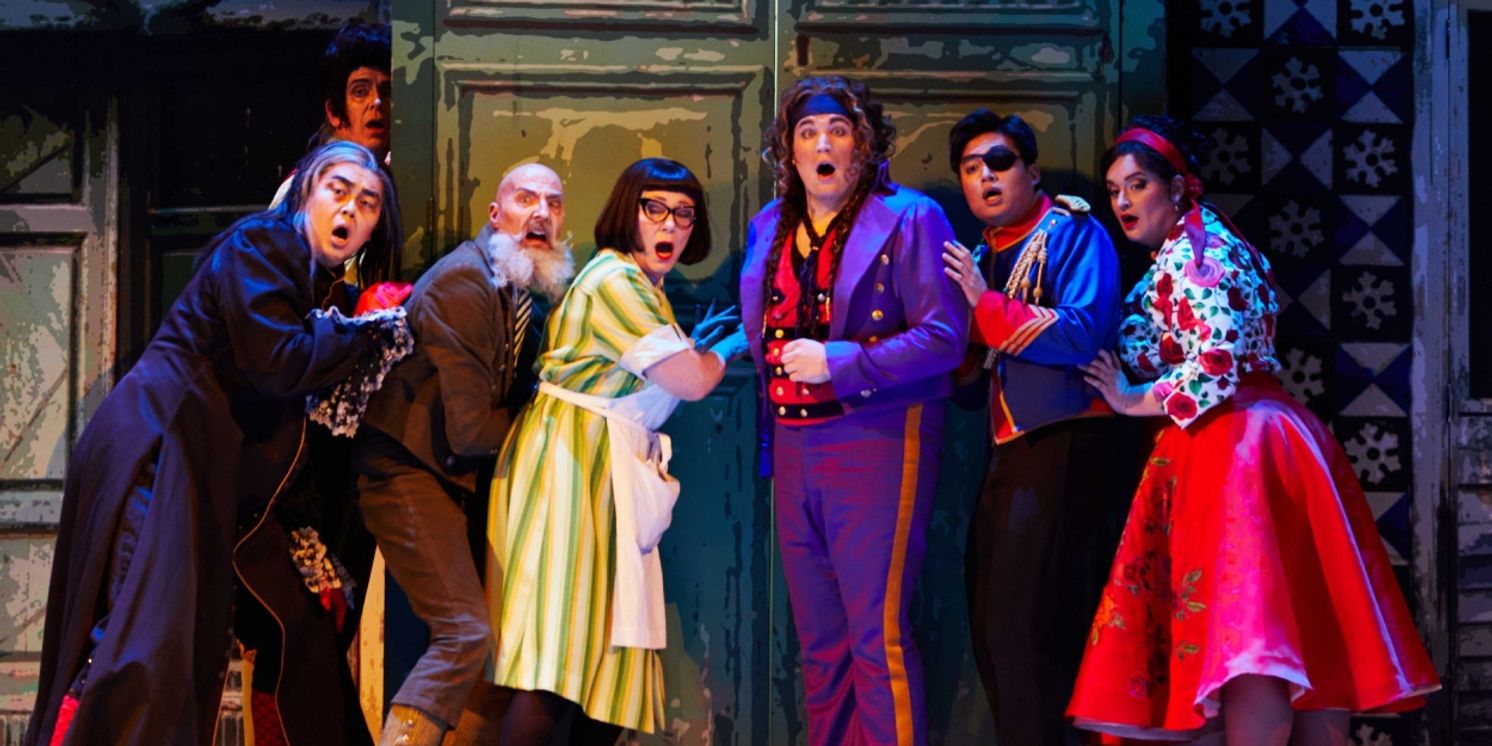
According to Beethoven, Rossini’s “excellent opera buffa,” The Barber of Seville, would be “played so long as Italian opera will exist.” The older master’s assessment was spot on. Over the past two centuries, this youthful, energetic confection remains Rossini’s most beloved work.
On May 4, Seattle Opera chose this gem, a co-production between Opera Queensland, Seattle Opera and New Zealand Opera, to initiate the photo finish to their 2023-24 season. It was clearly the right move. Directed by Lindy Hume (SO’s The Stranger, Rigoletto, Count Ory), with its boldly colored, spectacularly vibrant sets and costumes, gave an overall effect that was captivating: funny, sexy, and alive.
The well-appointed cast included panoplies of familiar performers coupled with an impressive number of fresh new faces, providing an extraordinary assemblage of talent onstage.
It’s always intriguing to see a Figaro making his debut, and Sean Michael Plumb, who already has made a name for himself at the Met Opera, was shamelessly self-promoting in his characterization. His initial appearance via the hall for his Largo factotum aria, reminiscent of Alice’s White Rabbit being late for a very important date (i.e., showing up for his entrance) set the stage for an appealing portrayal that was comically adept, emphasizing the character’s inherent subtleties more than the slapstick angle. The voice, with its fearless high notes, fully filled the hall with no problem whatsoever.
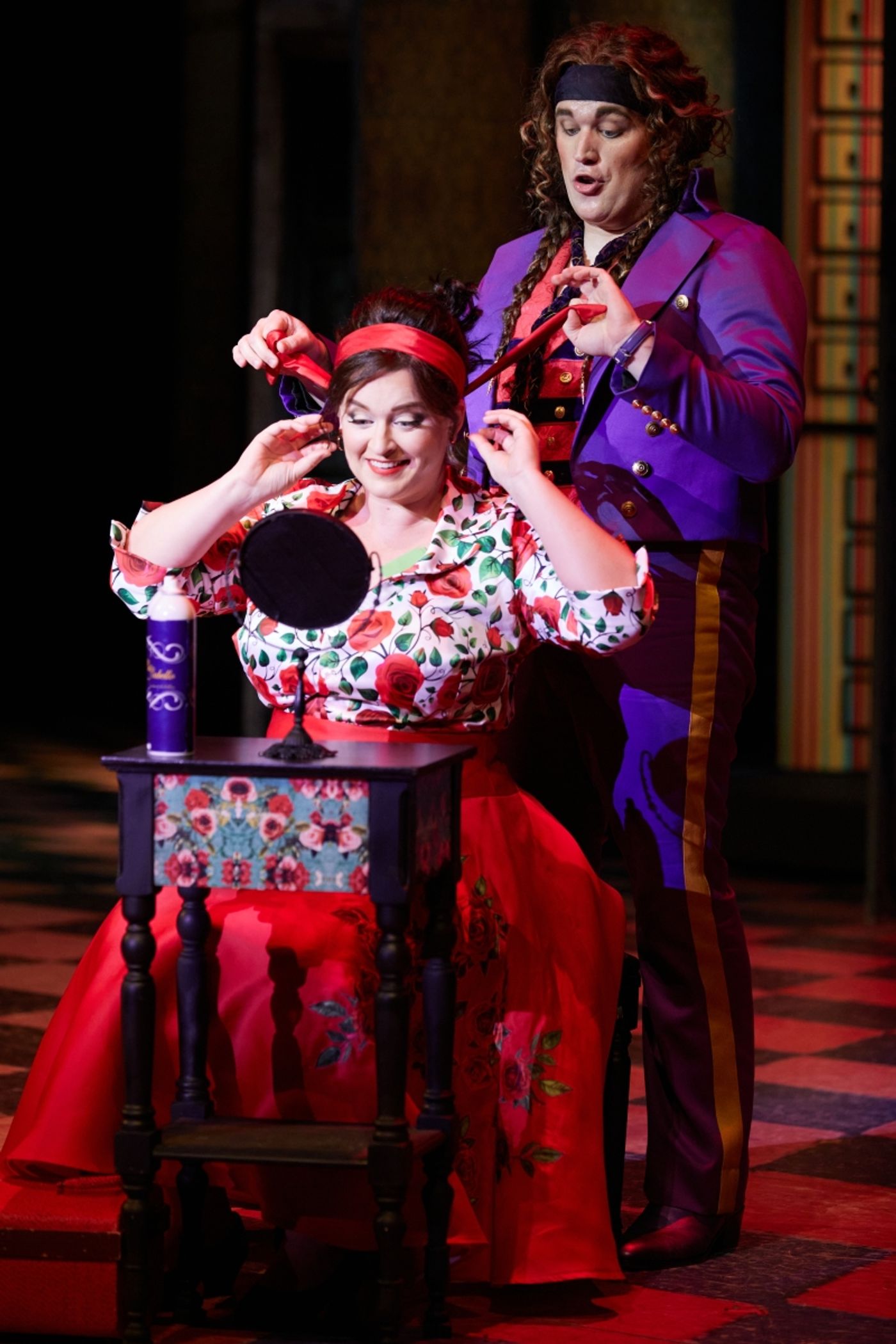
Megan Moore, also in her company debut, brought a combination of dreaminess and down-to-earth feistiness to her portrayal of the young Rosina. Her voice was remarkably flexible and varied: brighter and more lyrical than usual for this role, with a range that was superbly agile from top to bottom. Her acting was convincing; no one, not even Figaro, was going to mess with this fiery, determined young woman.
As Almaviva Duke Kim delivered a well-rounded performance that was proficient, not only vocally but comically. Both of his Act 1 arias showed that this role lies perfectly within his fach: lyrical, technically skillful with all the fioratura. But he also stood out in the ensembles, contributing greatly to the cohesiveness of the whole, and showed exceptional comic élan in all the physically demanding antics the staging required of him.
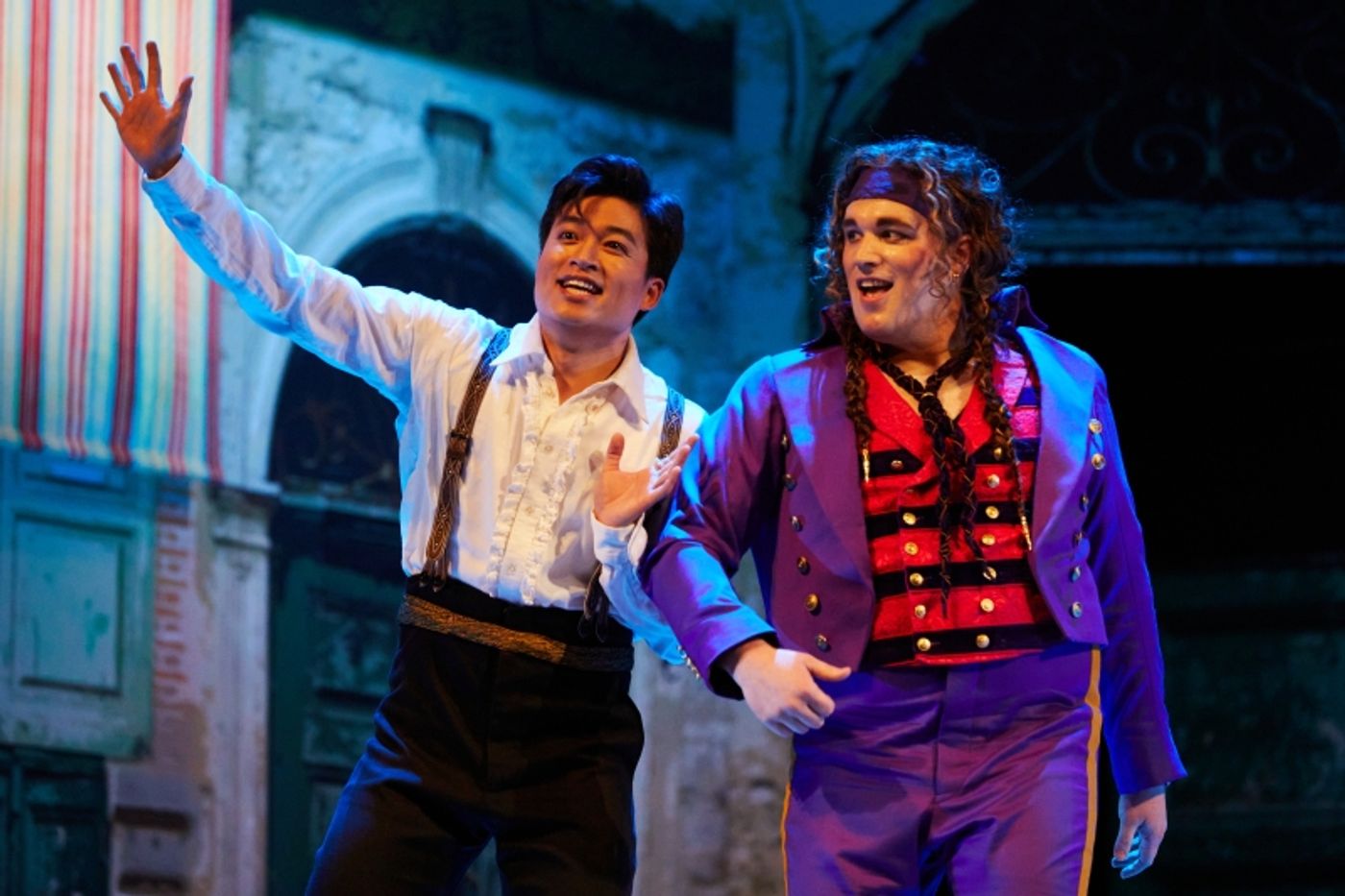
Returning bass Kevin Burdette is an opera singer for all seasons, known for his comic flair, but also for more serious roles. He portrayed Don Bartolo in true Jim Carrey style, emphasizing the wicked, Count Olaf aspects of the crotchety old tormentor, showing his sleazy side to great effect and acquitting himself impressively in the role’s more demanding vocal aspects.
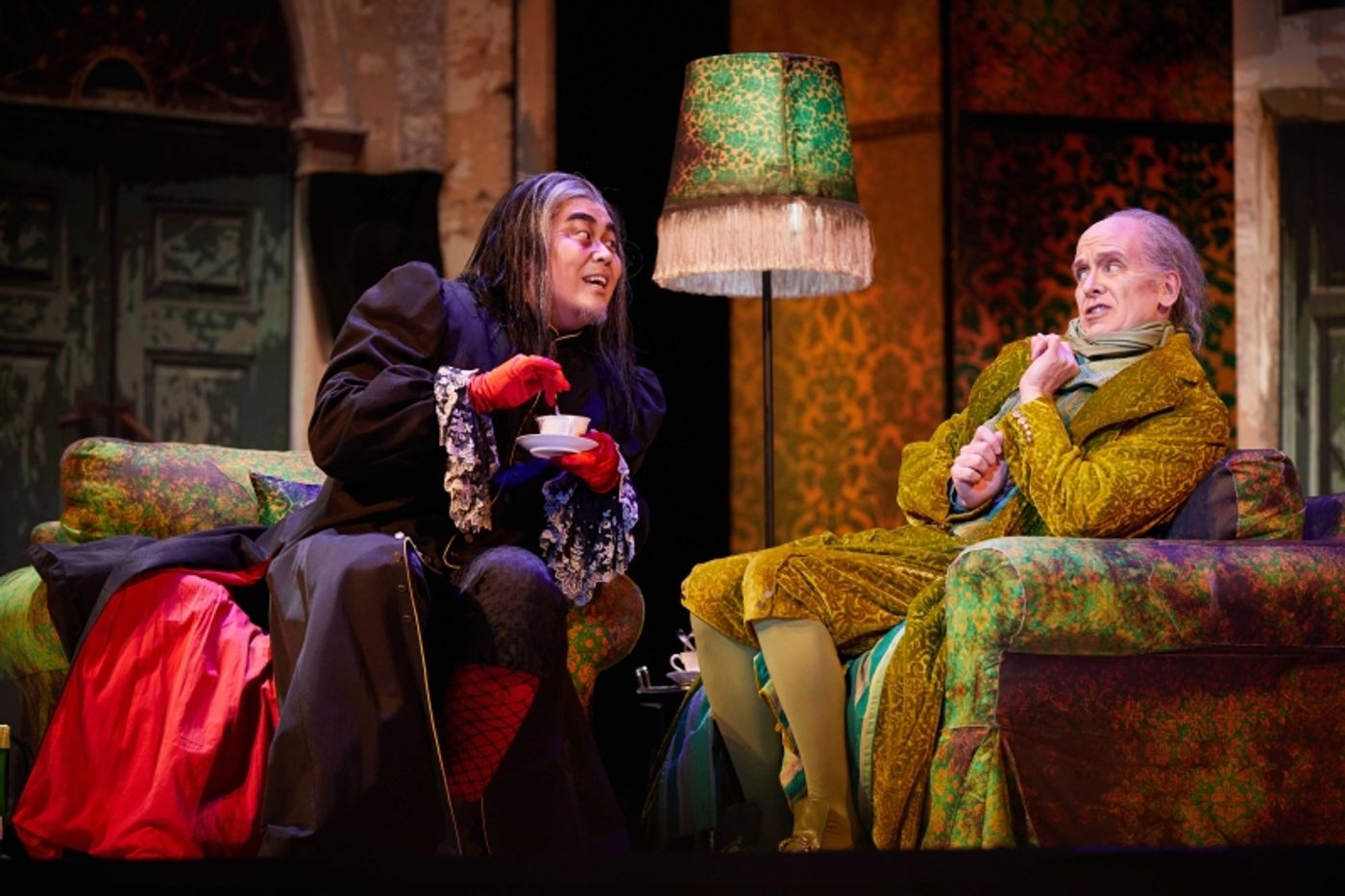
William Guanbo Su made a huge impression debuting as Don Basilio. The voice is much fuller and lusher than what is accustomed in this role, powerful but not thunderous, and overwhelming the listener with its power and sumptuousness. His acting was appropriately varied: at once comical and serious, mugging when appropriate, grabbing the viewer’s attention whenever he was onstage.
In her SO debut, Deanne Meek’s Berta was more fleshed out (literally; see above: “sexy”) than was usual for this secondary role, with an offbeat, gawking characterization that elicited appreciative laughter throughout the house. Her Act 2 aria, often somewhat an afterthought, came off so beautifully as to compete with any of the other arias in the show, especially its ringing high notes.
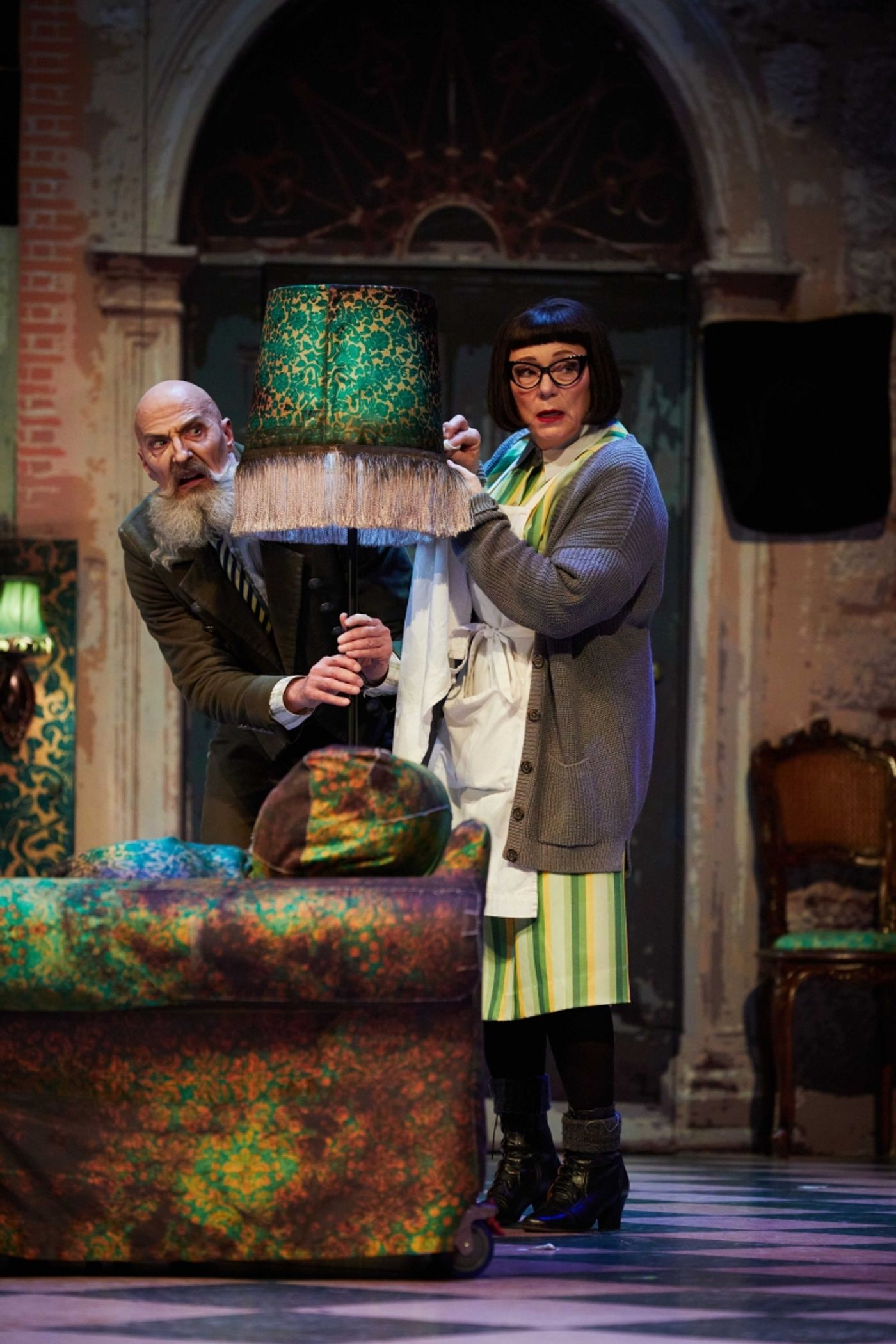
Michael J. Hawk, in his SO debut, stood out in the small but pivotal role of Fiorello. Marc Kenison/Waxie Moon as Ambrogio provided the required antics with aplomb.
Another refreshing debut was that of Italian conductor Valentina Peleggi, who displayed Florentine subtlety in her lively tempi, intuitive phrasing, and overall command of the orchestra. Starting with a spirited overture, she maintained an appropriately Italianate character in each aria and ensemble and brought out the absolute best from the orchestra, all the way to the end.
Chorus master Michaella Calzaretta continues to impress with her first-rate coaching of her singers, who were required to execute complicated stage maneuvers in addition to their singing demands.
Tracy Grant Lord’s set designs included an assortment of doors and windows, both interior and exterior, which symbolized the burning desire of a young woman to spring free of her restricted captive world. Figaro, her lifeline to the outside, crisscrosses between outside and inside, while her would-be lover Almaviva, fantasizing about breaking down the doors to liberate her from her prison, serenades her from the outside. The concept works brilliantly, as the minor characters—Berta being a prime example—also dream of being set free.
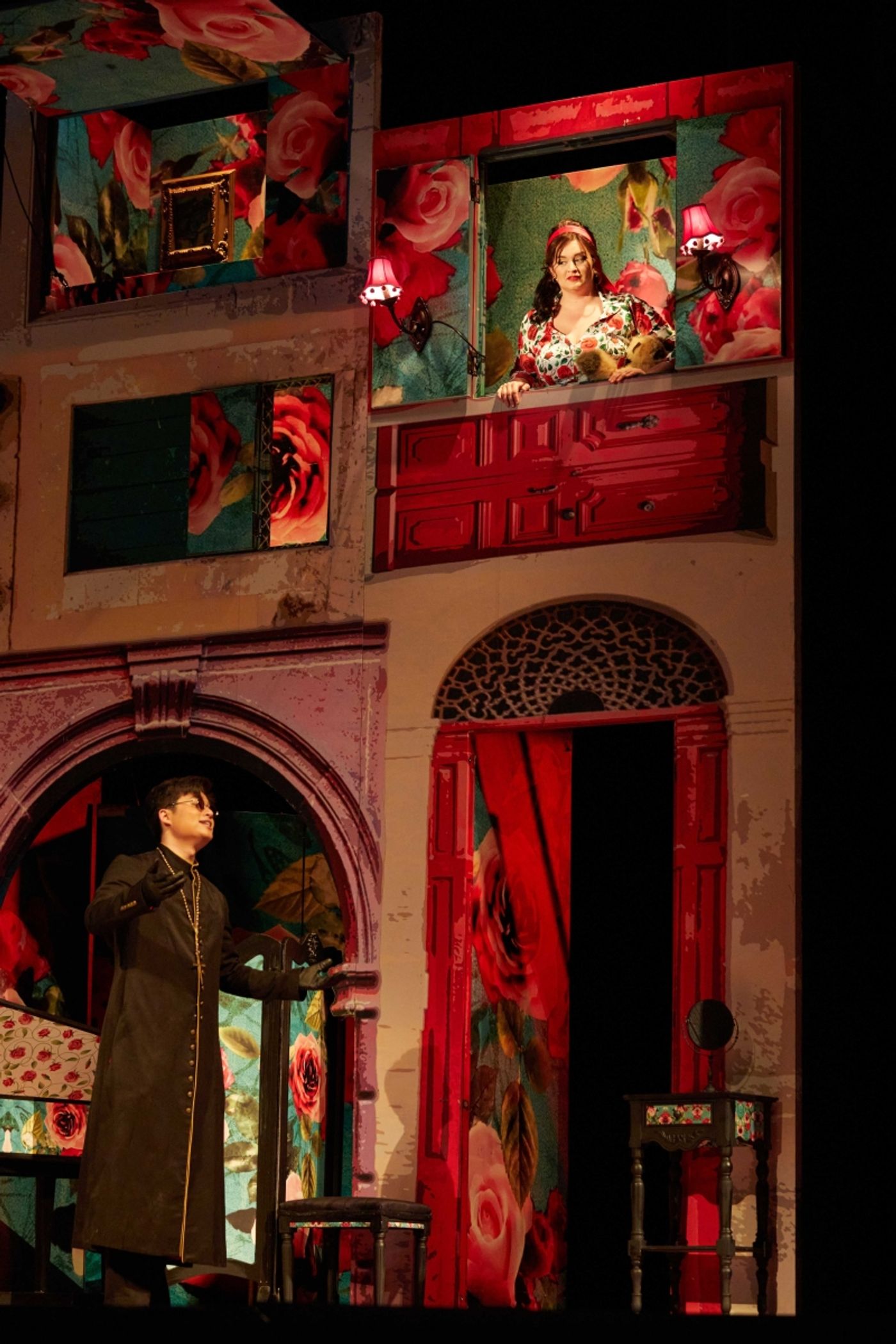
Matthew Marshall’s eye-catching lighting provided continuous interest with arresting detail, from the lit-up doorways and windowsills during the overture to the jaundiced yellow of Basilio’s supposed illness and beyond.
Hume’s direction provided plentiful opportunity for the characters to ham it up. It's not every day one sees a long-limbed man dangling upside down from a chandelier. But the pièce de resistance was the stunningly presented, authentically choreographed fandango finale. All the characters banded together to dance, slap hands, and in general carry on to the max to Associate Director and Choreographer Daniel Pelzig’s brilliant step routine. A great deal of work went into this buoyant, vigorous ending, and it showed. The audience could barely contain their delight. That is a sure sign of a well thought out, splendidly implemented production. It was without a doubt the highlight of, and a perfect ending to, the company’s season.
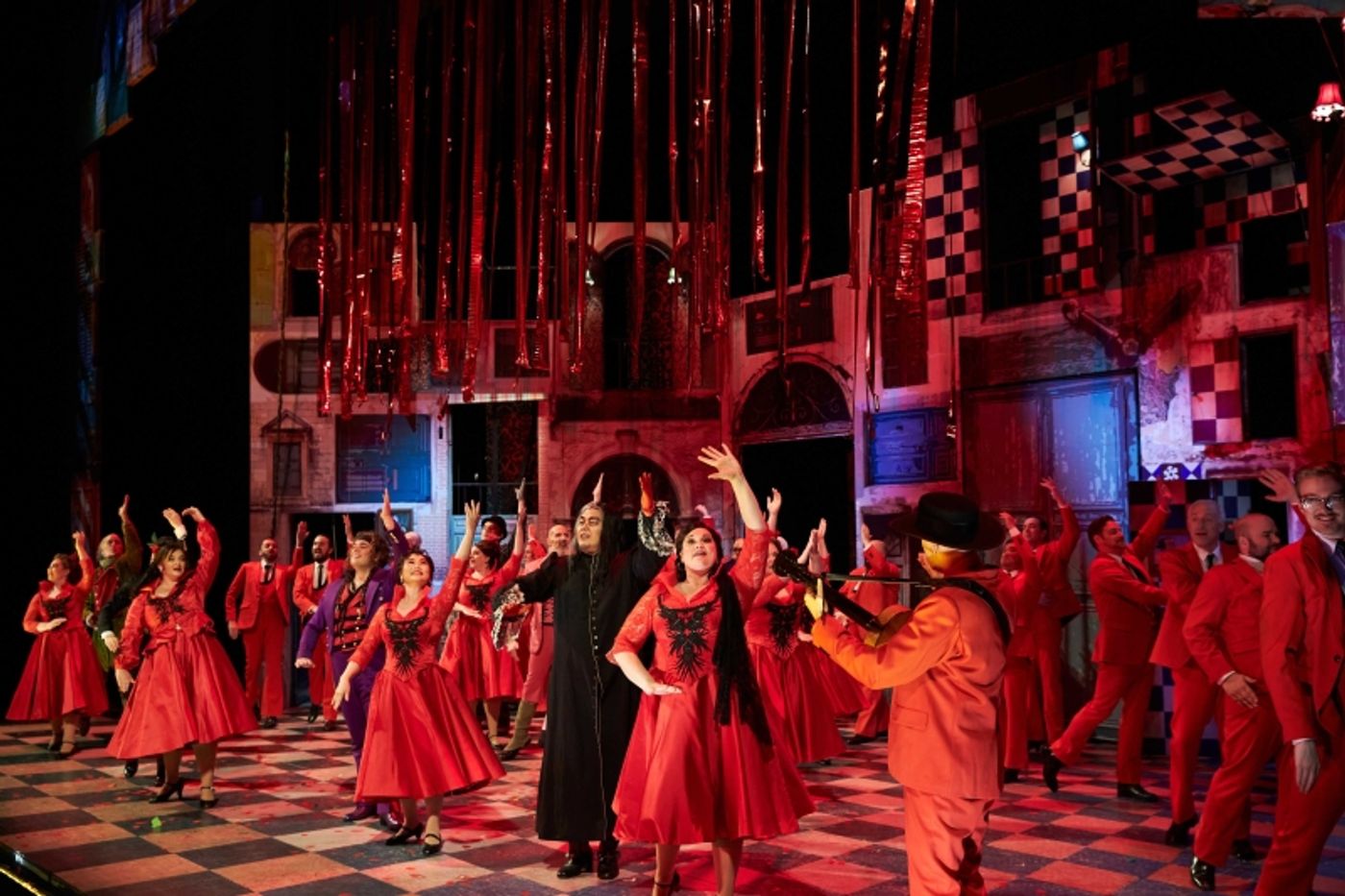
The Barber of Seville runs May 4–19, 2024, at Seattle Opera. Tickets and info:
https://www.seattleopera.org/barber
Photo credits: Philip Newton
Reader Reviews

Videos

